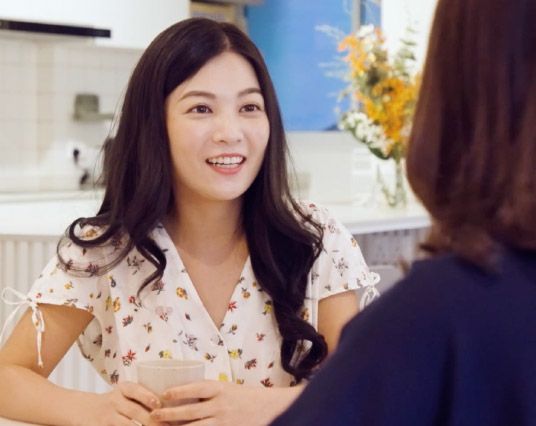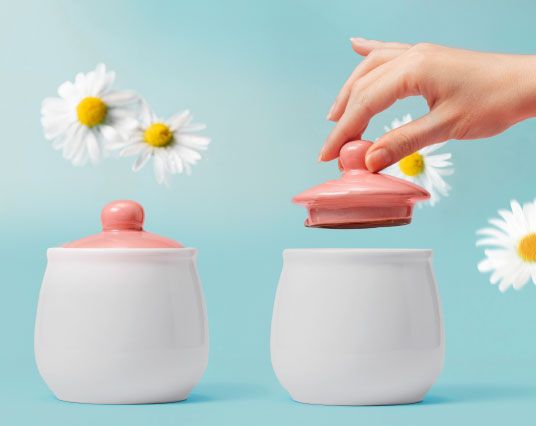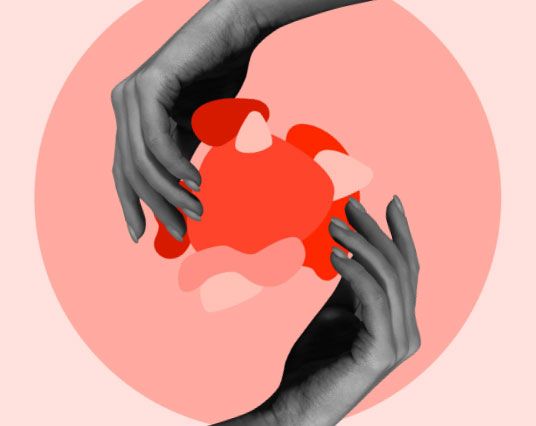
Empowering women
Getting a breast cancer diagnosis does not mean giving up or
losing the quality of life, according to these survivors.

he numbers are clear – the top cancer for Singaporean women is breast cancer,
with over 2,400 women diagnosed yearly. Yet behind the statistics lie individual
stories of hope, strength and empowerment. Here, four survivors share their
journeys in the belief that they might help another woman who stands at a
similar crossroads in the present or the future.
Prioritise your health
Ms Jayde Simpson is aware of what many women think about breast health because she was
one of them. “I thought of myself as invincible, that something like this would not happen to
me,” she said. So the discovery of Stage 2 breast cancer came as a shock – while on holiday,
she felt a lump that did not go away.
Yet, at the same time, it came as a sort of blessing. “The cancer diagnosis gave me the
discipline I needed to prioritise myself,” Ms Simpson, 51, said, reflecting on her journey through
chemotherapy, a double mastectomy and reconstructive surgery. “I think women generally
put other family members first, which can mean they neglect their health. Previously, I made
excuses that I needed to attend to work, my husband and my children. But I now consider that
prioritising my health means I will be around longer to enjoy time with my family.”

“I was aware of how my breasts would
change during my regular cycle and
managed to self-identify the lump early
enough to have a successful outcome.”
Ms Jayde Simpson, 51, whose breast cancer journey has taught her to prioritise her health

he numbers are clear – the top cancer for Singaporean women is breast cancer, with over 2,400 women diagnosed yearly. Yet behind the statistics lie individual stories of hope, strength and empowerment. Here, four survivors share their journeys in the belief that they might help another woman who stands at a similar crossroads in the present or the future.
Prioritise your health
Ms Jayde Simpson is aware of what many women think about breast health because she was one of them. “I thought of myself as invincible, that something like this would not happen to me,” she said. So the discovery of Stage 2 breast cancer came as a shock – while on holiday, she felt a lump that did not go away.
Yet, at the same time, it came as a sort of blessing. “The cancer diagnosis gave me the discipline I needed to prioritise myself,” Ms Simpson, 51, said, reflecting on her journey through chemotherapy, a double mastectomy and reconstructive surgery. “I think women generally put other family members first, which can mean they neglect their health. Previously, I made excuses that I needed to attend to work, my husband and my children. But I now consider that prioritising my health means I will be around longer to enjoy time with my family.”

“I was aware of how my breasts would change during my regular cycle and managed to self-identify the lump early enough to have a successful outcome.”
Ms Jayde Simpson, 51, whose breast cancer journey has taught her to prioritise her health


0
%
Breast cancer accounted for nearly half of all cancer diagnoses for women in Singapore in their 40s from 2016 to 2020. The disease was the most common cancer diagnosis for women aged 30 to 79.
Stay positive, stay away from Google
Ms Jill Koh, 48, wants women not to believe everything they see about breast cancer on TV. “Dramatic soap operas give the wrong impression – that everyone must have chemotherapy, radiation, then go bald, sit and look withered in a wheelchair,” said the woman who battled Stage 3 invasive lobular carcinoma, which had spread to the lymph nodes.
“Not everyone gets sickly and weak; it depends a lot on various factors,” said Ms Koh. “My skin was glowing as I drank so much fluid to ‘flush’ the chemotherapy medication out after each treatment.” Her advice for women? “Do not worry too much about the entire process, and do not try to Google and self-diagnose every side-effect. Stay positive.”
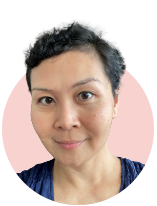
“My husband would insist I walk almost daily. I continued with housework and cooking, and we worked to maintain as normal a routine as possible.”
Ms Jill Koh, 48, determinedly stayed positive despite Stage 3 breast cancer that had spread to her lymph nodes
Better breast care habits
These are the tips to remember through sickness and health:
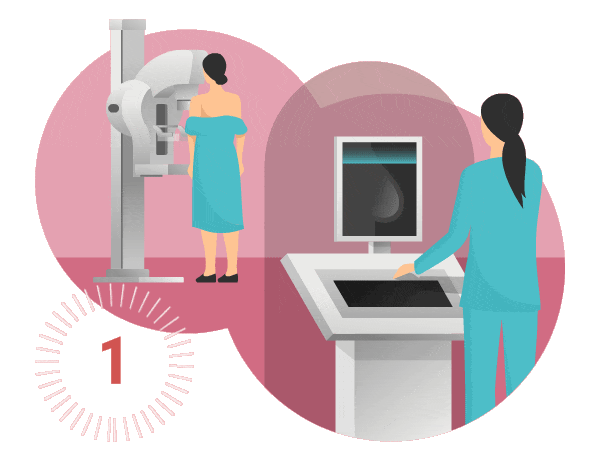
REDUCE YOUR RISK:
Perform monthly self-checks and get regular mammograms. Lead a balanced lifestyle, which includes regular exercise, good sleep and healthy foods. “Don’t take your breast health for granted,” said Ms Neary.
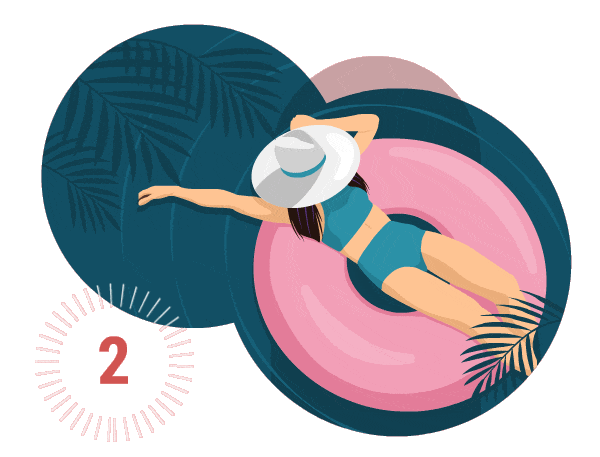
STAY POSITIVE:
“There are many variations of breast cancer, but most of these can be controlled as long as you receive treatment soonest,” said Ms Koh.
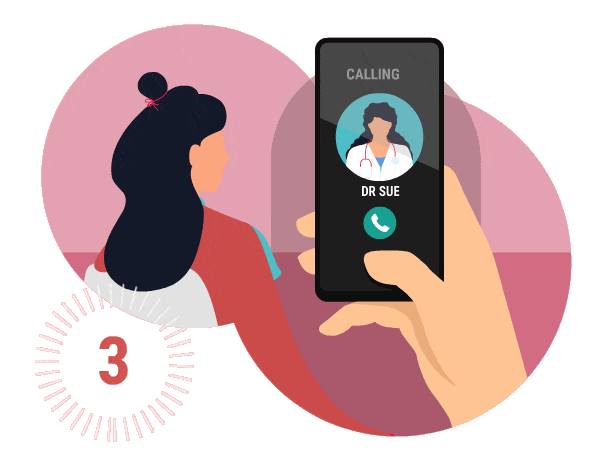
ACT EARLY:
If you spot something unusual, raise your concerns to your doctor. “The earlier you detect something, the more chance of success you have,” said Ms Simpson. “There is only downside to not acting early.”

FIND MOTIVATION:
The journey is long. “Decide what you want to do when your health is restored so that you can be motivated to complete your treatment,” advised Ms Kodama. “Encourage yourself by saying, ‘I will come back like a phoenix.’”
Finding strength in dance
After Ms Nahoko Kodama was diagnosed with Stage 2 breast cancer, she started chemotherapy. The 65-year-old found a way to keep moving forward. “It was important to find the energy to carry out the chemotherapy until the end,” Ms Kodama said. “So I decided to continue with ballroom dance lessons and take part in a competition. My dance teacher was supportive. His encouragement and my enthusiasm for dance were major factors in completing the chemotherapy.”
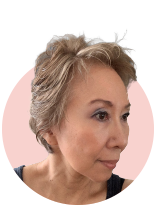
“Unless someone around you has cancer, you will not understand the difficulty of cancer treatment. But early detection means a shorter treatment period and a smaller burden.”
Ms Nahoko Kodama, 65, kept herself going with ballroom dance classes

Seeing life with new eyes
A diagnosis of aggressive, Stage 3 breast cancer might be daunting for anyone, as it was for Ms Amy Neary. When she discovered it at 44, it had already spread to her lymph nodes. She had a mastectomy and reconstructive surgery before embarking on a two-year treatment plan that included chemotherapy, radiotherapy, biotherapy and more surgery.
It was a tough battle, but Ms Neary, now 53, has emerged on the other side with a new perspective on life. “As weird as it sounds, cancer has been a gift. It helped me to see what matters the most,” said Ms Neary. “It helped me understand so much more about myself and the people I love and gave me a deeper appreciation for life and its fragility.”
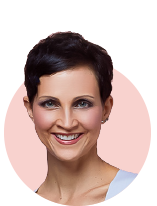
“Although a cancer diagnosis is scary, cancer taught me how we choose to react, changes the course of this journey. Attitude is everything!”
Ms Amy Neary, 53, had a mastectomy, reconstructive surgery and cancer treatment after a Stage 3 breast cancer diagnosis












